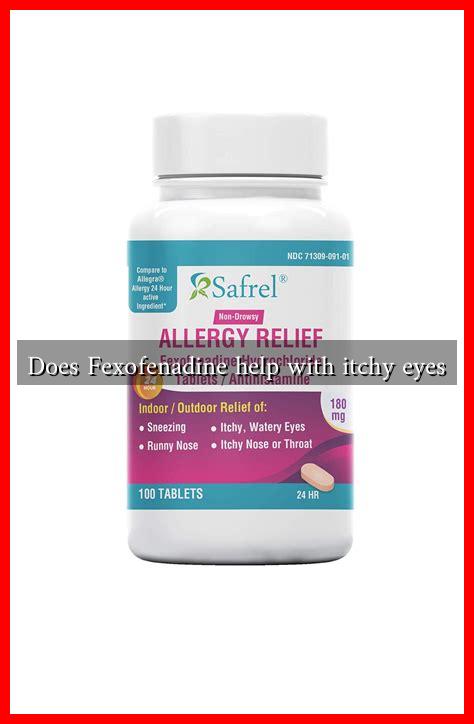-
Table of Contents
Does Fexofenadine Help with Itchy Eyes?
Itchy eyes can be a frustrating and uncomfortable symptom, often caused by allergies, environmental irritants, or other underlying conditions. Many individuals seek relief through various over-the-counter medications, one of which is Fexofenadine. This article explores the effectiveness of Fexofenadine in alleviating itchy eyes, its mechanism of action, and relevant considerations for users.
Understanding Fexofenadine
Fexofenadine is a second-generation antihistamine commonly used to treat allergic symptoms, including hay fever and chronic urticaria (hives). Unlike first-generation antihistamines, Fexofenadine is less likely to cause drowsiness, making it a popular choice for those who need to maintain their daily activities without sedation.
How Fexofenadine Works
Fexofenadine works by blocking the action of histamine, a substance in the body that is responsible for allergic symptoms. When allergens such as pollen, dust, or pet dander enter the body, histamine is released, leading to symptoms like:
- Itchy eyes
- Runny or stuffy nose
- Sneezing
- Skin rashes
By inhibiting histamine receptors, Fexofenadine can effectively reduce these symptoms, including the discomfort associated with itchy eyes.
Effectiveness of Fexofenadine for Itchy Eyes
Numerous studies have examined the efficacy of Fexofenadine in treating allergic conjunctivitis, a common cause of itchy eyes. A clinical trial published in the Journal of Allergy and Clinical Immunology found that patients taking Fexofenadine experienced significant relief from itchy eyes compared to those receiving a placebo. The study highlighted the following points:
- Participants reported a 50% reduction in eye itchiness after taking Fexofenadine.
- Fexofenadine was well-tolerated, with minimal side effects reported.
- Improvement in overall quality of life was noted among users.
Another study published in the American Journal of Ophthalmology confirmed that Fexofenadine effectively reduced ocular symptoms in patients with allergic conjunctivitis, further supporting its use for itchy eyes.
Considerations and Side Effects
While Fexofenadine is generally safe for most individuals, it is essential to consider potential side effects and contraindications. Common side effects may include:
- Headache
- Dizziness
- Nausea
- Dry mouth
Individuals with certain medical conditions or those taking specific medications should consult a healthcare provider before using Fexofenadine. Pregnant or breastfeeding women should also seek medical advice to ensure safety.
Alternative Treatments for Itchy Eyes
For those who may not find relief with Fexofenadine or prefer alternative options, several other treatments are available:
- **Other Antihistamines**: Other second-generation antihistamines like Loratadine or Cetirizine may also provide relief.
- **Eye Drops**: Antihistamine eye drops can directly target itchy eyes.
- **Cold Compresses**: Applying a cold compress can soothe irritation and reduce swelling.
- **Avoiding Allergens**: Identifying and avoiding triggers can significantly reduce symptoms.
Conclusion
Fexofenadine is an effective option for individuals suffering from itchy eyes due to allergies. Its ability to block histamine receptors helps alleviate discomfort and improve quality of life. While it is generally safe and well-tolerated, users should be aware of potential side effects and consult healthcare professionals if they have any concerns. For those seeking alternative treatments, various options are available to manage itchy eyes effectively. Ultimately, understanding the cause of itchy eyes and exploring suitable treatments can lead to better symptom management and improved well-being.

